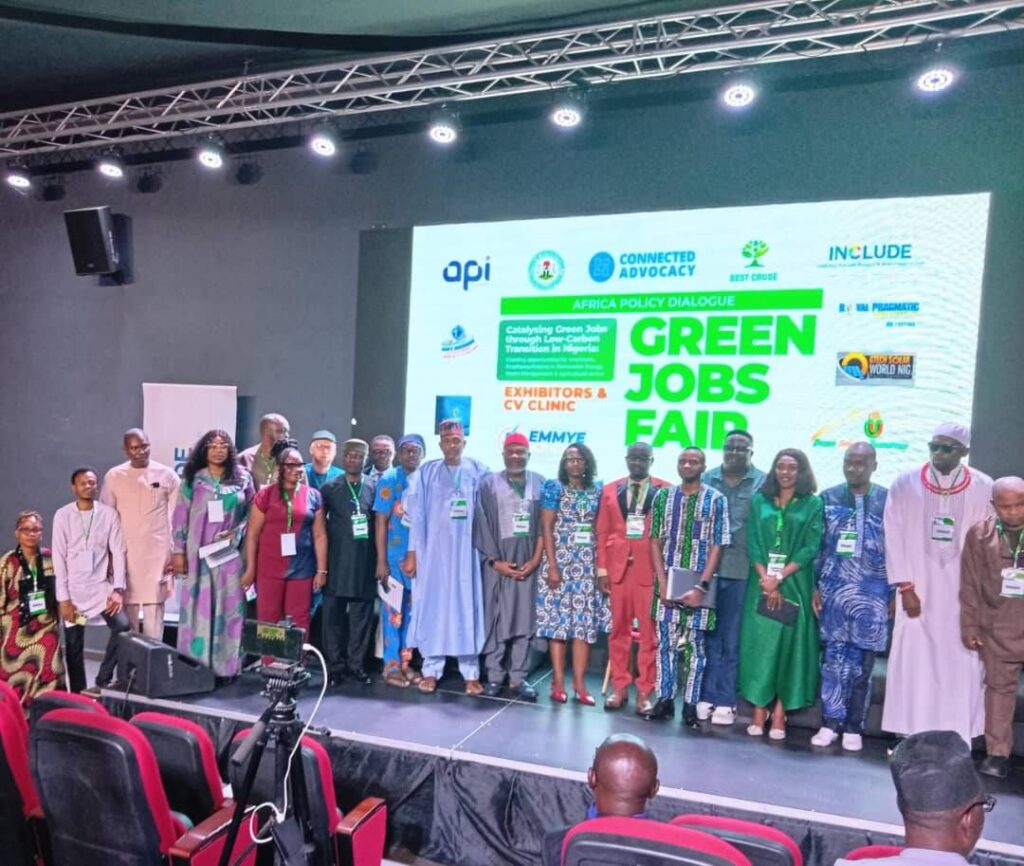Merged-Zonal Africa Policy Dialogue (APD): Legislative Engagement & Green Job Fair
Theme: Catalysing Green Jobs through Low-Carbon Transition in Nigeria to Strengthen Subnational Action for Inclusive Green Growth
Date: 17 October 2025
Venue: Victor Uwaifo Creative Centre, Benin City, Edo State
Organised by Advocacy for Policy and Innovation (API), Connected Advocacy, INCLUDE Knowledge Platform, and the House Committee on Renewable Energy.
Executive Summary
The Merged-Zonal Africa Policy Dialogue (APD) Legislative Engagement and Green Job Fair, held on 17th October 2025 in Benin City, Edo State, was a pivotal event aimed at catalysing green jobs through Nigeria’s low-carbon transition. The programme provided a platform for dialogue between legislators, policymakers, youth, and private sector actors to deliberate on inclusive policies that can accelerate sustainable employment creation within the renewable energy and environmental sustainability sectors. The event also featured a job fair linking employers to job seekers and aspiring green entrepreneurs.
The engagement aligned with Nigeria’s broader objectives for just energy transition and green economic development by localising discussions at the sub-national level. Through the collaborative efforts of API, Connected Advocacy, and INCLUDE Knowledge Platform, in partnership with the House Committee on Renewable Energy, the dialogue strengthened institutional linkages and identified practical entry points for inclusive green growth policy implementation.
- Background
Nigeria faces a pressing need to address unemployment, youth disenfranchisement, and the environmental impacts of fossil fuel dependency. The Africa Policy Dialogue (APD) initiative seeks to bridge the gap between research, policy, and implementation through participatory platforms that amplify citizens’ voices in national policy formulation. The merged-zonal dialogue for the South-South and South-West regions was designed to consolidate lessons, priorities, and stakeholder perspectives for incorporation into two national frameworks — the National Inclusive Green Jobs Act (NIGJA)Bill and the National Green Skills Employment Alliance (NGSEA).
- Objectives of the Dialogue
- Promote subnational participation in shaping green job and skills policies.
- Integrate regional insights into the development of
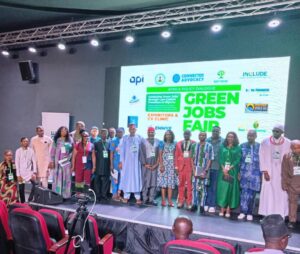
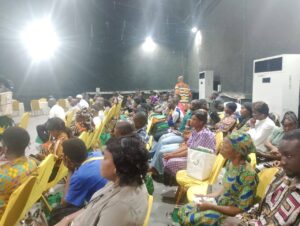
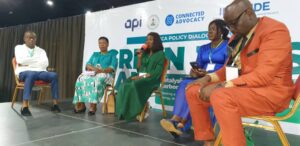
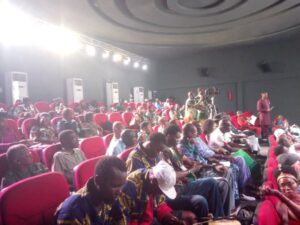 NIGJA Bill and NGSEA frameworks.
NIGJA Bill and NGSEA frameworks. - Link employers, training institutions, and job seekers within the green sector.
- Build regional coalitions to sustain momentum for inclusive green economy initiatives.
- Foster youth leadership and gender equity in renewable energy and sustainability fields.
- Methodology and Structure
The dialogue was structured to combine high-level legislative engagement with practical sessions designed to facilitate employment linkages. It featured an opening plenary, technical presentations, a high-level panel, CV and skills clinics, vendor exhibitions, and networking sessions. The interactive format enabled knowledge sharing, mentorship, and feedback loops between policymakers, employers, and young professionals.
- High-Level Attendance
The event was declared open by Hon. Afam Victor Ogene, Chairman of the House Committee on Renewable Energy, supported by his Deputy, Hon. Iliyasu Aliyu Abubakar. In her opening remarks, Abra Dangnan, Deputy Chair of CoP/APD Co-Lead, introduced the APD project, its vision, and expected outcomes. Mr. Aniebiet Obot, APD Co-Lead, presented a progress report on APD’s methodological framework and milestones achieved to date. The session was moderated by Miss Evelyn Williams and coordinated by Prince Israel Orekha, Executive Director of Connected Advocacy and Zonal Coordinator for the South-South/South-West APD.
Key dignitaries included representatives from the Energy Commission of Nigeria, Edo State Ministry of Environment and Sustainability, Niger Delta Development Commission (NDDC), NABTEB, and traditional institutions. Their goodwill messages emphasised the urgency of coordinated action to mainstream inclusive green job creation into Nigeria’s national economic agenda.
- Panel Sessions and Green Job Fair
The Green Jobs Fair Panel was co-facilitated by Dr. Carl Oshodi-Isibor and Mrs. Adesuwa James Jang. The panel featured industry experts including Prof. (Mrs.) Georgina Erifeta of Igbinedion University, Amb. Dr. Ogiemwonyi Brightence, Mrs. Edith Iyalomhe, Mrs. Irene Ipogah (NABTEB), and Mr. Kenneth Iwoghiren. Discussions focused on bridging the gap between education, technical skills, and employment within Nigeria’s green transition framework. Panelists encouraged innovation, entrepreneurship, and collaboration among public and private actors to grow green jobs in the renewable energy, waste management, and agri-tech sectors.
A follow-up CV clinic guided participants on career positioning and soft skill development for green economy careers. Participants interacted directly with company representatives and training vendors to explore pathways for internships, mentorship, and skill enhancement.
- Key Discussions and Findings
Need for harmonised data collection on green job sectors and skills demand.
Contextualisation of policy frameworks to reflect subnational realities and informal sector contributions.
Strengthening private sector incentives for investment in renewable energy and green manufacturing.
Building TVET–industry linkages to support skill-based training and certification.
Promoting gender-responsive and youth-inclusive participation in the green transition.
Ensuring predictable financing and policy consistency to build investor confidence.
- Survey Insights
Pre- and post-event surveys revealed a notable increase in participants’ understanding of the green economy and its career prospects. Over 75% of respondents indicated interest in pursuing training or internships in renewable energy or climate-smart agriculture. Participants also emphasised the need for mentorship and sustained engagement with policymakers to ensure youth perspectives influence implementation of the NIGJA and NGSEA frameworks.
- Key Outcomes and Commitments
Compilation of zonal recommendations for inclusion in national policy drafts (NIGJA/NGSEA).
Formation of regional coalitions to drive follow-up actions and advocacy campaigns.
Employer commitments to apprenticeship placements and job matching support.
Agreements to enhance collaboration among TVET institutions and local green enterprises.
Expanded media coverage to sustain momentum and public awareness.
- Recommendations
Institutionalise zonal dialogues as continuous policy feedback mechanisms.
Develop incentives to attract youth participation in renewable energy and environmental services.
Integrate green entrepreneurship modules into national and state TVET curricula.
Enhance coordination between ministries of environment, labour, and education for policy coherence.
Allocate specific funding lines within national and subnational budgets to support green job creation initiatives.
- Conclusion
The Merged-Zonal Africa Policy Dialogue and Green Job Fair successfully bridged legislative action and practical implementation. It reinforced Nigeria’s readiness to foster an inclusive, low-carbon economy that prioritises youth, women, and local community participation. The commitments made during the dialogue will contribute to the national policy framework, while follow-up coalitions will ensure sustained advocacy, monitoring, and knowledge sharing across regions.
